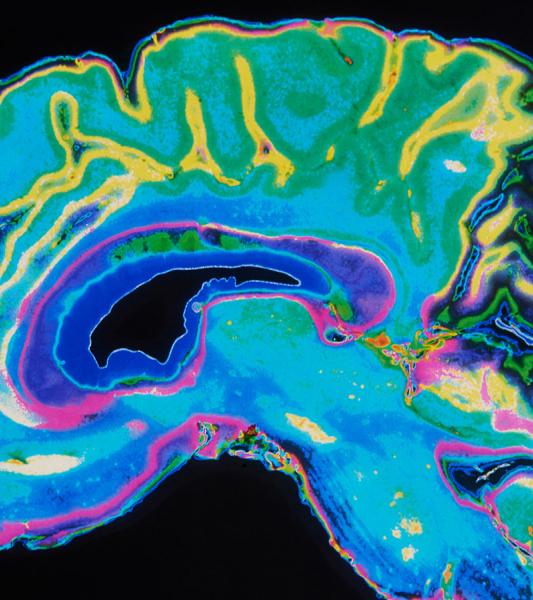The Department of Psychology specializes in nine areas of research and training: Behavioral Neuroscience, Clinical Psychology, Cognitive Psychology, Cognitive Neuroscience, Decision Psychology, Developmental Psychology, Intellectual and Developmental Disabilities, Quantitative Psychology and Social Psychology. Learn more about the focus, core faculty and labs of each below.
Behavioral Neuroscience Core Faculty and Labs
The Coutellier Lab researches how circuits of the prefrontal cortex regulate emotional and cognitive functions throughout the lifespan, as well as factors that can alter these circuits and their implications in neuropsychiatric and neurological diseases.
The Kirby Lab researches the role of hippocampal neural stem and progenitor cells (NSPCs) in modulating the hippocampal response to environmental stimuli.
The Lenz Lab conducts research on how the brain develops and changes during flexible periods of life: before birth, during childhood, adolescence, and pregnancy.
The Leuner Lab conducts preclinical research to address issues and questions that are specific to the female brain and women’s brain health.
The Sehgal Lab studies cellular and molecular processes in the nervous system that enable cognitive tasks such as learning and memory.
Clinical Psychology Core Faculty and Labs
The Stress and Immunity Cancer Project conducts innovative research on the bio-behavioral aspects of cancer in order to improve the psychological well-being and health of cancer patients.
The MAPS (Mood and Personality Studies) Lab conducts research on mood and personality, with projects on kindness, hope, emotion regulation, social media and interpersonal emotion regulation.
The Cognitive Health in Late Life (CHILL) Lab studies cognitive health and dementia prevention in populations at greatest risk for Alzheimer's disease
The MINDSET Lab uses cognitive neuroscience techniques, such as MRI, to conduct research on the impact of traumatic brain injury (TBI) and psychological stress on the brain and overall health outcomes.
The Buckeye Brain Aging Lab examines modifiable lifestyle variables that are associated with optimal cognitive performance and brain health, including aerobic fitness, strength, spatiotemporal gait metrics, balance, sleep and nutrition.
The Clinical Neuroscience Lab trains the next generation of clinical scientists devoted to the study of evidence-based lifestyle interventions, neuropsychology and neuroimaging.
The SHADE Lab explores ‘Mind-Body’ issues as they relate to physical health and well-being, including the dynamic interplay amongst stress, mood, behavior, social factors and physiology, as well as interventions that might promote enhanced health and/or well-being.
The Depression Research Laboratory studies the role of cognition in abnormal emotional states, including in the etiology and treatment of depression.
Cognitive Psychology Core Faculty and Labs
The Vision and Cognitive Neuroscience Lab investigates how the brain perceives and codes objects and their spatial locations, as well as how eye movement, shifts of attention, and other top-down factors affect these representations.
The Cognition in Motion Lab investigates the cognitive processes underlying action, such as attention, perception and memory, and develops new measurement techniques and mathematical models so that these dynamic processes can be understood in greater detail. This lab is not currently active.
The Cognition and Decision Modeling Laboratory pursues an understanding of cognitive and neural processes, especially those related to decision-making, including by developing and using computational models. This lab is not currently accepting students.
The Cognitive Control Laboratory investigates the neural and cognitive factors that behind flexible control of behavior.
The Li Lab studies the computational and neural mechanisms underlying cognitive processes such as decision-making, working memory and visual attention.
The Cognitive Psychology Laboratory conducts research on the processes underlying representation and decision making, with current focuses on memory, perception and numeracy. Lab is not currently active.
The Computational Cognition Lab studies the computational modeling of intertemporal choice, risky decision, numerical cognition, category learning, function learning and response inhibition.
The Cognition and Brain Circuitry Lab aims to understand the relationship between brain connectivity, function and behavior, with a special focus on visual perception and attention.
The Visual Cognition Lab investigates relational processing and its pivotal role in human cognition, focusing in particular on the role of visual systems.
The Language Perception Lab conducts research on the brain mechanisms engaged in verbal communication, particularly those involved in recognition.
The Cognitive Psychology Laboratory conducts research on the processes underlying representation and decision making, with current focuses on memory, perception and numeracy.
The Z-Lab conducts research on how the human brain develops and changes with experience.
The Model-Based Cognitive Neuroscience Lab employs cognitive models to investigate how the brain produces behavior.
Cognitive Neuroscience Core Faculty and Labs
The Vision and Cognitive Neuroscience Lab investigates how the brain perceives and codes objects and their spatial locations, as well as how eye movement, shifts of attention, and other top-down factors affect these representations.
The MINDSET Lab uses cognitive neuroscience techniques, such as MRI, to conduct research on the impact of traumatic brain injury (TBI) and psychological stress on the brain and overall health outcomes.
The Buckeye Brain Aging Lab examines modifiable lifestyle variables that are associated with optimal cognitive performance and brain health, including aerobic fitness, strength, spatiotemporal gait metrics, balance, sleep and nutrition.
The Cognitive Control Lab investigates the neural and cognitive factors that behind flexible control of behavior.
The Li Lab studies the computational and neural mechanisms underlying cognitive processes such as decision-making, working memory and visual attention.
The Cognition and Brain Circuitry Lab aims to understand the relationship between brain connectivity, function and behavior, with a special focus on visual perception and attention.
The Clinical Neuroscience Lab trains the next generation of clinical scientists devoted to the study of evidence-based lifestyle interventions, neuropsychology and neuroimaging.
The Z-Lab conducts research on how the human brain develops and changes with experience.
The Model-Based Cognitive Neuroscience Lab employs cognitive models to investigate how the brain produces behavior.
The Social Cognitive Neuroscience Lab investigates how humans take disparate facts and observations about other people and weave these into complex and multidimensional character portraits, which form the basis of our person knowledge.
Decision Psychology Core Faculty and Labs
The Motivation and Cognitive Science Laboratory investigates how motivation (what we want) and cognition (how we think) interact to determine our evaluations, judgments and behavioral decisions.
The Cognition and Decision Modeling Laboratory pursues an understanding of cognitive and neural processes, especially those related to decision-making, including by developing and using computational models. This lab is not currently accepting students.
The Cognitive Psychology Laboratory conducts research on the processes underlying representation and decision making, with current focuses on memory, perception and numeracy.
The Van Zandt Lab explores changes to the cognitive system in response to stimuli over time.
Developmental Psychology Core Faculty and Labs
The Social Development Lab conducts research on sociomoral development, prosocial behavior and complex social interactions. This lab is not currently active.
The Developmental Cognitive Science Lab studies the processes of conceptual change.
The Learning Disabilities Innovation Hub examines the development of the cognitive processes related to language, reading and mathematics from the behavioral genetic perspective.
The Z-Lab conducts research on how the human brain develops and changes with experience.
The Children and Parents Lab studies families as a primary context for young children’s social and emotional development.
The Cognitive Development Lab explores how and why cognition changes in the course of development and learning.
The Language Sciences Research Lab investigates how children acquire language, and in particular, how they learn about meaning.
Intellectual and Developmental Disabilities Core Faculty and Labs
Through interdisciplinary research, education/training, clinical services and dissemination activities, the Nisonger Center strives to improve the lives of people with intellectual and neurodevelopmental disabilities across their lifespan.
Through interdisciplinary research, education/training, clinical services and dissemination activities, the Nisonger Center strives to improve the lives of people with intellectual and neurodevelopmental disabilities across their lifespan.
Through interdisciplinary research, education/training, clinical services and dissemination activities, the Nisonger Center strives to improve the lives of people with intellectual and neurodevelopmental disabilities across their lifespan.
Quantitative Psychology Core Faculty and Labs
The Cho Lab advances statistical methodologies that measure individuals’ psychological states and scrutinize their interrelations with other relevant variables
The Pek Lab studies methodological practices in relation to replication, measurement error and reliability, and uncertainty quantification with respect to sampling variability, measurement error and model approximation.
The Van Zandt Lab explores changes to the cognitive system in response to stimuli over time.
Social Psychology Core Faculty and Labs
The Attitudes and Social Cognition Lab investigates basic social psychological phenomena like attitude formation, attitude change and the relationship between attitudes and behavior, as well as the automatic and controlled processes that guide social behavior.
The Motivation and Cognitive Science Laboratory investigates how motivation (what we want) and cognition (how we think) interact to determine our evaluations, judgments and behavioral decisions.
The Subjective Perspectives Lab investigates the mental processes underlying people’s subjective perceptions of the world and of themselves.
The APL (Attitudes and Persuasion Lab) investigates the situational and individual difference factors responsible for changes in beliefs, attitudes and behaviors.
The Self, Stereotypes, and Social Norms Lab conducts research on processes related to the self, identity and motivation, focusing in particular on how these processes affect stereotyping and prejudice.
The Social Cognitive Neuroscience Lab investigates how humans take disparate facts and observations about other people and weave these into complex and multidimensional character portraits, which form the basis of our person knowledge.
The Social Affective and Immunology Lab investigates how psychological factors trigger the immune system and how the immune system can alter emotions and decision-making.









